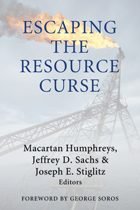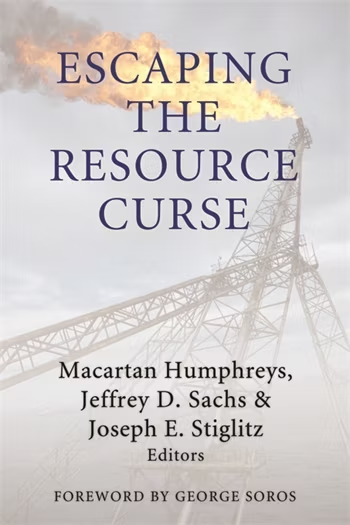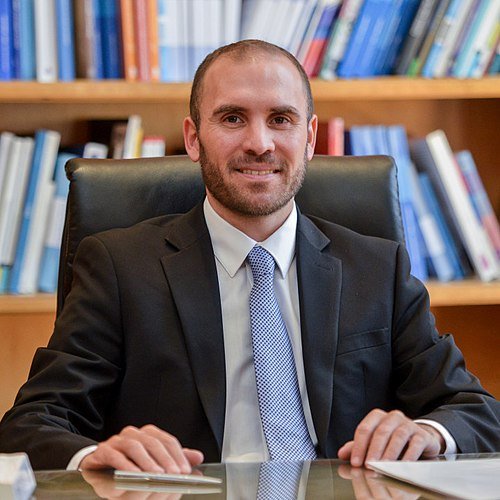
The wealth derived from natural resources can have a tremendous impact on the economics and politics of producing countries. In the last quarter century, we have seen the surprising and sobering consequences of this wealth, producing what is now known as the “resource curse.” Countries with large endowments of natural resources, such as oil and gas, often do worse than their poorer neighbors. Their resource wealth frequently leads to lower growth rates, greater volatility, more corruption, and, in extreme cases, devastating civil wars.
In this volume, leading economists, lawyers, and political scientists address the fundamental channels generated by this wealth and examine the major decisions a country must make when faced with an abundance of a natural resource. They identify such problems as asymmetric bargaining power, limited access to information, the failure to engage in long-term planning, weak institutional structures, and missing mechanisms of accountability. They also provide a series of solutions, including recommendations for contracting with oil companies and allocating revenue; guidelines for negotiators; models for optimal auctions; and strategies to strengthen state-society linkages and public accountability.
The contributors show that solutions to the resource curse do exist; yet, institutional innovations are necessary to align the incentives of key domestic and international actors, and this requires fundamental political changes and much greater levels of transparency than currently exist. It is becoming increasingly clear that past policies have not provided the benefits they promised. Escaping the Resource Curse lays out a path for radically improving the management of the world’s natural resources.
This is a timely and important contribution to the debate on the so-called resource curse and how to avoid it; especially important in a time of concern about energy security and sustainable economic development. As someone who witnesses first hand the struggle for more transparency and good governance in the global energy business, I welcome the fresh, thought-provoking, and always illuminating insights offered in this collection of essays.
– Lord Browne
Group Chief Executive, BP (British Petroleum)
This book offers practical policy solutions to the resource curse& mdash;a problem affecting the lives of millions and millions of people. It represents an extraordinary contribution and will become a reference for scholars and policy makers seeking to tackle this devastating issue.
– George Soros
Chairman and Founder of the Open Society Group
This is an important effort to throw light on and seek solutions to the phenomenon of the ‘resource curse’ whose effects have contributed to keeping millions of people impoverished despite the wealth of their countries. It should be an essential handbook for policy makers in all oil-rich countries.
– Ngozi Okonjo-Iweala
Former Minister of Finance and Minister of Foreign Affairs for Nigeria
About the Editors
Macartan Humphreys
Assistant Professor
Political Science
Columbia University
Macartan Humphreys is assistant professor of political science at Columbia University and publishes on the politics of economic policy making, bargaining theory, and rebel behavior in civil war.
Jeffrey Sachs
Director, Earth Institute
Columbia University
Jeffrey D. Sachs is the Director of The Earth Institute at Columbia University and the director of The UN Millennium Project. In 2004 and 2005 he was named one of the most influential leaders in the world by Time magazine and is the recipient of the Sargent Shriver Award for Equal Justice.
Joseph Stiglitz
President
Initiative for Policy Dialogue (IPD)
Joseph E. Stiglitz is President of the Initiative for Policy Dialogue, and Chairman of the Committee on Global Thought at Columbia University. He is University Professor at Columbia, teaching in its Economics Department, its Business School, and its School of International and Public Affairs. He chaired the UN Commission of Experts on Reforms of the International Monetary and Financial System, created in the aftermath of the financial crisis by the President of the General Assembly. He is former Chief Economist and Senior Vice-President of the World Bank and Chairman of President Clinton’s Council of Economic Advisors. He was awarded the Nobel Memorial Prize in Economics in 2001.
About the Authors
Peter Cramton
Professor of Economics
University of Maryland
Geoffrey Heal
Paul Garrett Professor of Public Policy and Business Responsibility
Columbia University
Martin E. Sandbu
Professor, Department for Legal Studies and Business Ethics, Wharton School of Business
University of Pennsylvania
Michael Ross
Professor of Political Science
University of California Los Angeles
Jenik Radon
Adjunct Professor
School of International and Public Affairs
Columbia University
Macartan Humphreys
Assistant Professor
Political Science
Columbia University
Macartan Humphreys is assistant professor of political science at Columbia University and publishes on the politics of economic policy making, bargaining theory, and rebel behavior in civil war.
Jeffrey Sachs
Director, Earth Institute
Columbia University
Jeffrey D. Sachs is the Director of The Earth Institute at Columbia University and the director of The UN Millennium Project. In 2004 and 2005 he was named one of the most influential leaders in the world by Time magazine and is the recipient of the Sargent Shriver Award for Equal Justice.
Joseph Stiglitz
President
Initiative for Policy Dialogue (IPD)
Joseph E. Stiglitz is President of the Initiative for Policy Dialogue, and Chairman of the Committee on Global Thought at Columbia University. He is University Professor at Columbia, teaching in its Economics Department, its Business School, and its School of International and Public Affairs. He chaired the UN Commission of Experts on Reforms of the International Monetary and Financial System, created in the aftermath of the financial crisis by the President of the General Assembly. He is former Chief Economist and Senior Vice-President of the World Bank and Chairman of President Clinton’s Council of Economic Advisors. He was awarded the Nobel Memorial Prize in Economics in 2001.
Terry Lynn Karl
Kimball University Fellow and Professor of Political Science
Stanford University
Joseph Bell
Partner
Hogan & Hartson LLP
Teresa Faria
Associate
Hogan & Hartson LLP
David Johnston
Contract Negotiator
Daniel Johnston & Co.Inc.
George Soros
Chairman
Soros Fund Management
 Joseph Stiglitz
Joseph Stiglitz Joseph Bell
Joseph Bell

 Martín Guzmán
Martín Guzmán